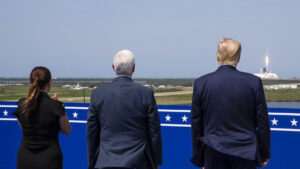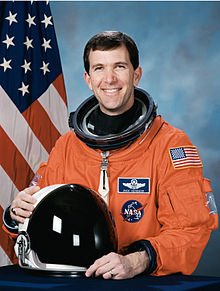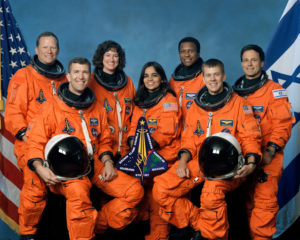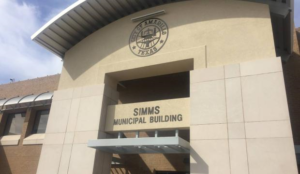There he was yet again, Donald John “Braggart in Chief” Trump taking credit he doesn’t deserve for the return of the U.S. manned space program.
Trump slathered himself with praise over the successful launch Saturday of the SpaceX rocket from Cape Canaveral, Fla., saying that only on his watch could this effort have become a reality.
Actually, it was the result of an effort began a decade ago during the Barack H. Obama administration, which in fact was a continuation of an effort started during the George W. Bush administration.
According to National Public Radio: “Today is the culmination of three and a half years of renewed leadership in space,” said Vice President Pence, who called the launch “a tribute to the vision and leadership of a president who, from the very first days of this administration, was determined to revive NASA and American leadership in human space exploration.”
C’mon, man! Get real!
Yes, I have lamented the end of the space shuttle program, even with its two disastrous missions — Challenger’s explosion in 1986 and Columbia’s disintegration in 2003. However, the SpaceX program initiated by Elon Musk now holds a huge new promise of manned space flight for the United States, as it was demonstrated Saturday with the launch and the successful docking today with the International Space Station.
It has been many years in the making, long before Donald Trump soiled the presidency with his presence in the Oval Office.
But that wouldn’t dissuade Trump and Pence from taking undue credit. Hey, it’s an election year … so I’ll presume that everything now becomes fair campaign game.
Disgusting.





